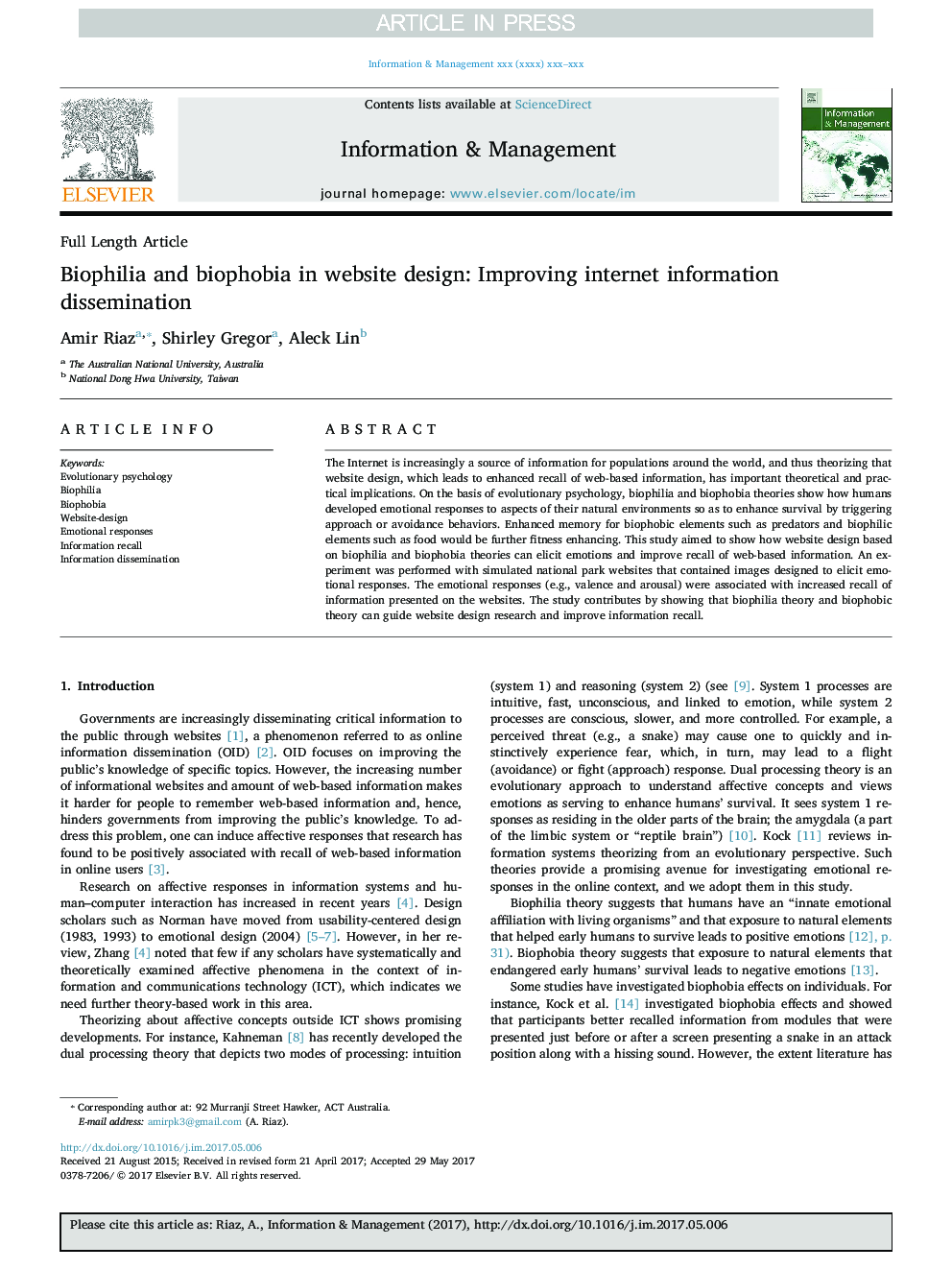| Article ID | Journal | Published Year | Pages | File Type |
|---|---|---|---|---|
| 6948841 | Information & Management | 2018 | 16 Pages |
Abstract
The Internet is increasingly a source of information for populations around the world, and thus theorizing that website design, which leads to enhanced recall of web-based information, has important theoretical and practical implications. On the basis of evolutionary psychology, biophilia and biophobia theories show how humans developed emotional responses to aspects of their natural environments so as to enhance survival by triggering approach or avoidance behaviors. Enhanced memory for biophobic elements such as predators and biophilic elements such as food would be further fitness enhancing. This study aimed to show how website design based on biophilia and biophobia theories can elicit emotions and improve recall of web-based information. An experiment was performed with simulated national park websites that contained images designed to elicit emotional responses. The emotional responses (e.g., valence and arousal) were associated with increased recall of information presented on the websites. The study contributes by showing that biophilia theory and biophobic theory can guide website design research and improve information recall.
Keywords
Related Topics
Physical Sciences and Engineering
Computer Science
Information Systems
Authors
Amir Riaz, Shirley Gregor, Aleck Lin,
